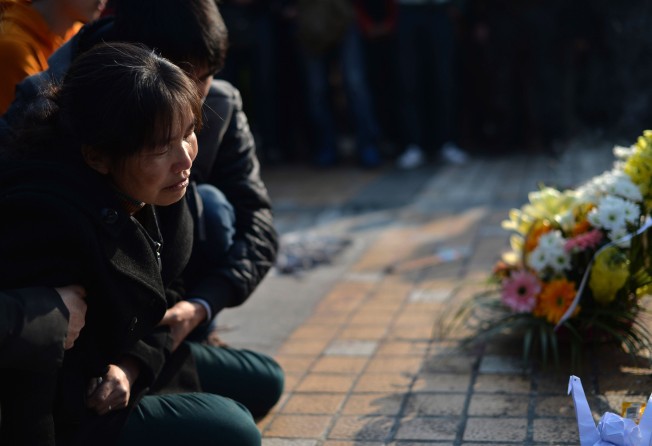China must address the grievances that fuel terrorism
Hu Shuli says while it is important to crack down on terrorism, the government must also work to foster national unity amid ethnic diversity

Twenty-nine people were killed and 143 wounded in the terrorist attack in Kunming on March 1. Forty hours after the assault, China's security authorities named Abdurehim Kurban as the mastermind. Police said "East Turkestan" flags used by Uygur separatists from Xinjiang were found at the scene.
Only six months earlier, a group of these separatists staged an attack at Tiananmen Square by driving a car through a crowd then crashing it, killing five people and injuring 40 others.
These two attacks perpetrated by Uygur separatists bear some similarities. First, they happened in crowded public places that are landmarks - Tiananmen is the political heart of China while Kunming railway station is a regional hub.
Second, the attackers were brutal and were prepared to die for their cause - all three terrorists involved in the Tiananmen attack died in action, while four of the five knife-wielding assailants in Kunming were killed.
Three, the dates of the attacks were picked with care: one happened just before the Communist Party's all-important third plenum; the other, just days before the annual legislative sessions.
Their time and location underlined the terrorists' intent to get maximum political mileage out of the attacks. This brings to mind the September 11 attacks targeting the US.
With the end of the cold war, there's been a clear shift in the tactics of the East Turkestan separatists; their area of activity has widened, their tactics have become more violent. The clash between ethnic Uygurs and state police on April 5, 1990, in the Baran township near Kashgar , was a watershed in the East Turkestan separatist movement, signalling its transition from a political campaign to a full-on terrorist movement.
Before the 2008 Olympic Games, the violence was mostly contained within Xinjiang. Since then, however, the attacks have not only become more frequent, but their scale has also grown. In China today, terrorism is a clear and present danger.
There are complex reasons for the escalation of terrorist violence. The disintegration of the Soviet Union and the end of the cold war is one important factor. Central Asia, at best a fringe player in international geopolitics, is a fractured region riven by simmering tensions. The cold war imposed an order and gave it some semblance of stability. Without it, the hostilities are free to resurface. Years of the Soviet war in Afghanistan had already turned the country into a hotbed of terrorism. Then came America's "war on terror". Its invasion of Iraq and operations in Afghanistan did break up a terrorist organisation, but, at the same time, they radicalised all kinds of separatist and terrorist groups, which became more fractured, thus more difficult to track and eliminate, and also more primitive and violent, hence the rise of suicide attacks.
The East Turkestan separatists in China do not act alone; they have links to other terrorist groups and some members have received militant training at camps in the Middle East and Central Asia.
Thus, to eliminate the threat, China and other UN Security Council members passed a resolution on counterterrorism, and Beijing has voted to support various other resolutions denouncing terrorism. Under the framework of the Shanghai Co-operation Organisation, it has also signed various pacts against terrorist activities.
A China on the rise cannot avoid facing up to the terrorist threat. As it becomes a more important global player, China will have to make many more decisions with wider implications, thus becoming more of a target for terrorists. In response, China must stand up to the threat and use the full force of the law to counter it. In the attacks by Uygur separatists, the ethnic identity of the attackers was highlighted, in the hope of winning over supporters at home and abroad.
We need to be clear. Terrorist violence betrays the most fundamental human values and international rules, including the values that Uygur Muslims hold dear. There can be no excuse for the taking of innocent lives. We must not fall into the trap of equating terrorist acts with a people's cause.
Countering terrorism will be a strategic challenge for China, and a new test. While it acts to crack down on activities, the government must also tackle the problems in Xinjiang that may have fuelled the violence.
Given the region's unique history, culture and religion, sorting out its political, economic and social problems will not be easy. Although economic development is important, it alone is no solution. More importantly, the authorities must ensure economic gains are fairly shared by all in Xinjiang, and ensure all legitimate grievances are heard.
In the long term, good governance in Xinjiang has much to do with China's national well-being. How a nation can preserve its ethnic diversity while keeping its national identity is a test the government must pass. This is the only way to root out terrorism.
This article is provided by Caixin Media, and the Chinese version of it was first published in Century Weekly magazine. www.caing.com